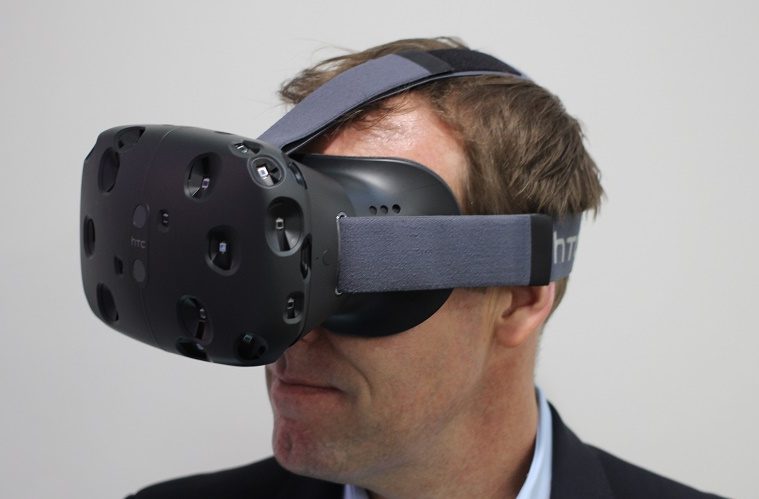HTC’s Vive VR headset, which is co-produced by games developer Valve, is set to launch in April 2016, the company has announced.
Originally HTC had planned to ship a ‘limited number’ of Vive headsets by the end of 2015, but consumers will now have to wait until April before they can get their hands on Vive. Developers will get their hands on the headset even earlier however, as HTC plans to distribute 7,000 units to developers in early 2016.
HTC will launch the second generation Vive developer kit at CES, with the company also taking the headset on the road to other key events, including The Sundance Film Festival, SXSW, GDC and MWC.
While the HTC Vive was co-produced by Valve, the developer behind the popular gaming service Steam, users can expect to do much more than just game on their Vive headsets.
HTC remains committed to delivering the Vive to a broad range of content creators and partners to open up new experiences made possible by virtual reality.
More will be revealed about HTC’s plans for the Vive at a developer’s conference scheduled to take place in Beijing on December 18th.
Virtual reality is already on course to change the way people consume content – something that could threaten the installation of high-resolution TVs and high-end sound systems – as people will only need a VR headset and a set of powerful headphones.
The HTC Vive has thus far been one of the most exciting virtual reality headsets to be unveiled; alongside the likes of the Oculus Rift and Sony’s PlayStation VR.
HTC’s Vive hardware has a refresh rate of 90 Hz, allowing content to be rendered at 90 frames-per-second, far higher than many of the TVs on the market which still come equipped with a 60Hz refresh rate. Some TVs on the market offer 120Hz or 240Hz, but users can expect to pay more the privilege.
Refresh rate is not the end of the story however, the headset also outputs at a resolution of 2160 x 1200, or 1080 x 1200 over two OLED displays for each eye. HTC has also equipped the headset with over 70 sensors including a MEMS gyroscope, accelerometer and laser position sensors all of which are designed to track the wearer’s movement, supposedly to make it even more realistic.
Critical consensus regarding the HTC Vive has been pretty positive thus far. Many who have tried out the system have regarded it as ‘mind-blowing’ or ‘incredible’ – citing that it’s one of the first VR headsets to truly blur the lines between the real world and the virtual world.


